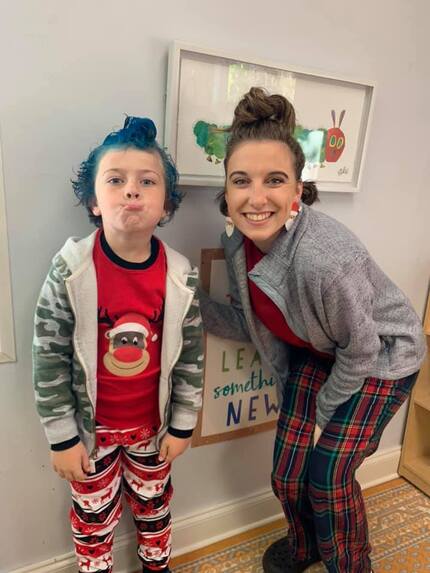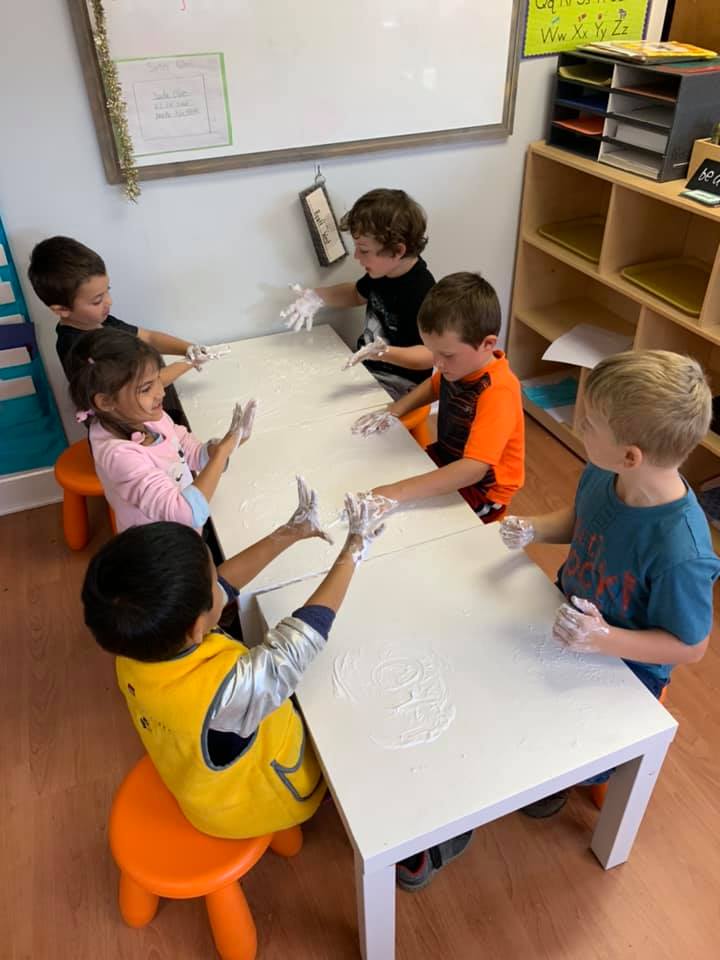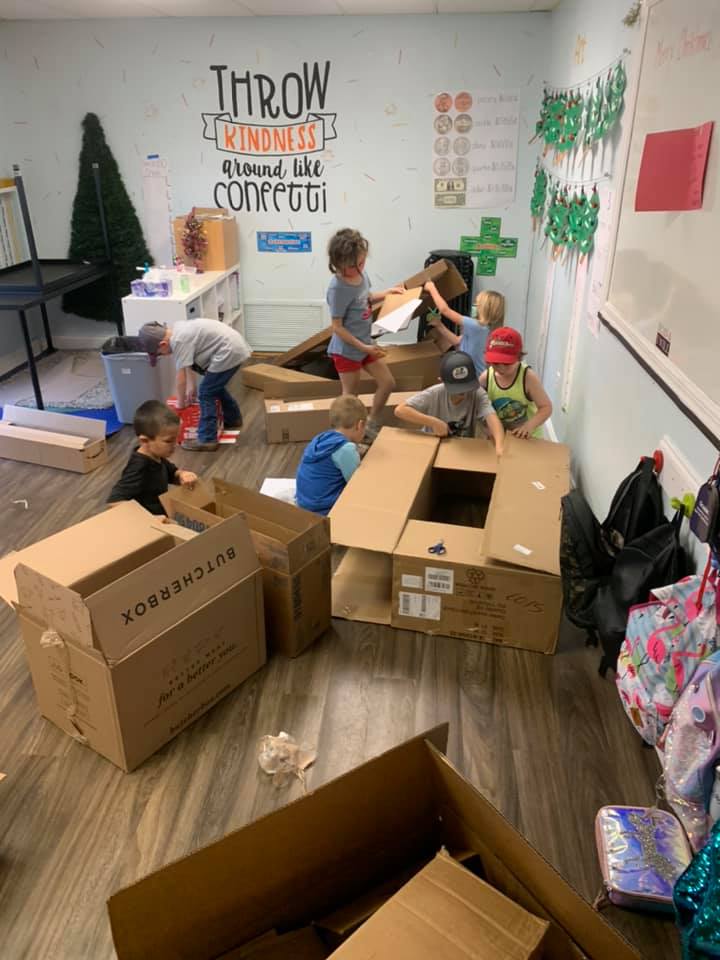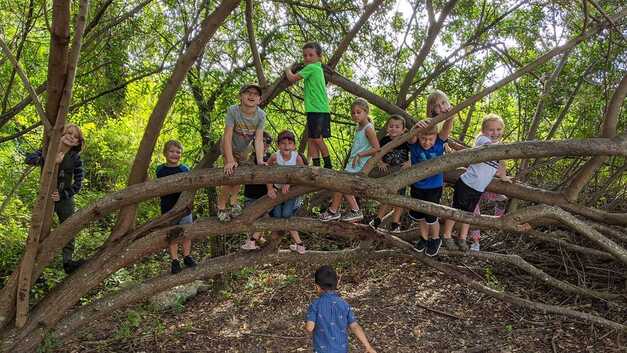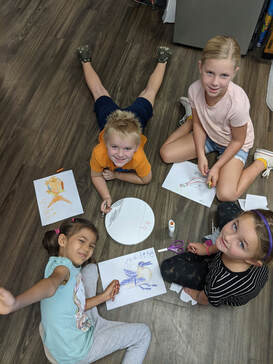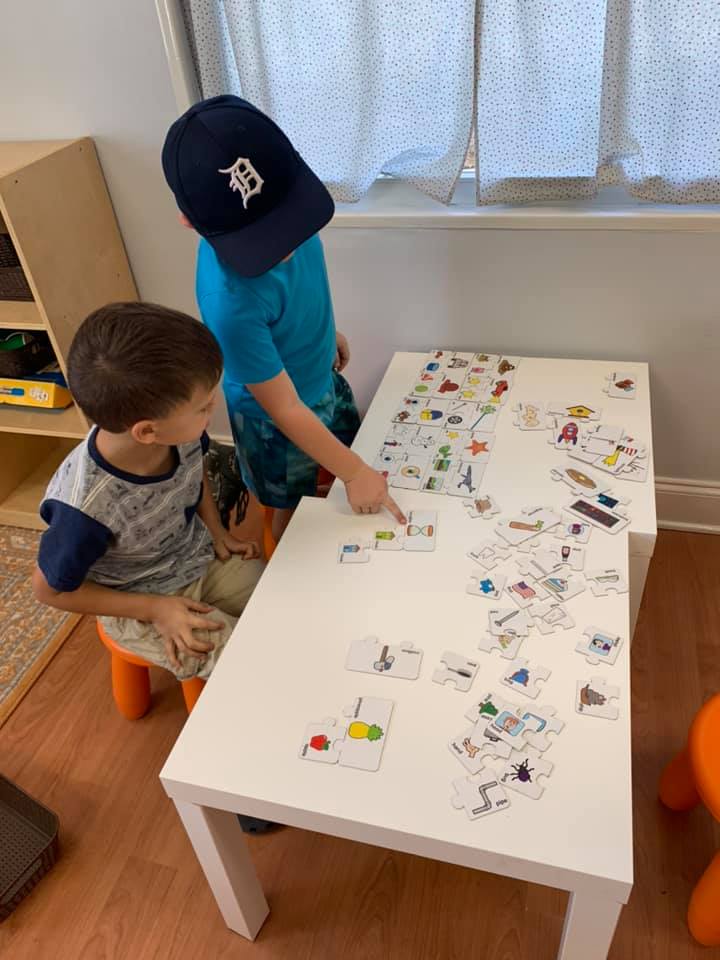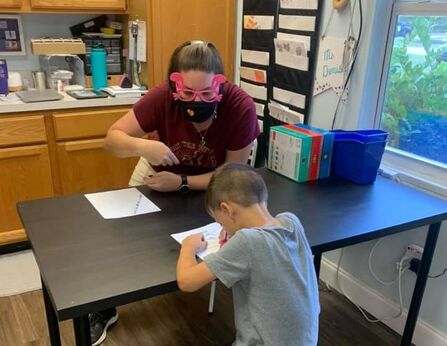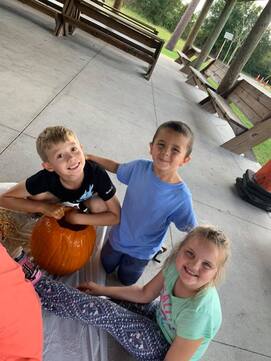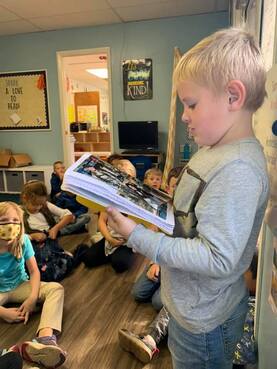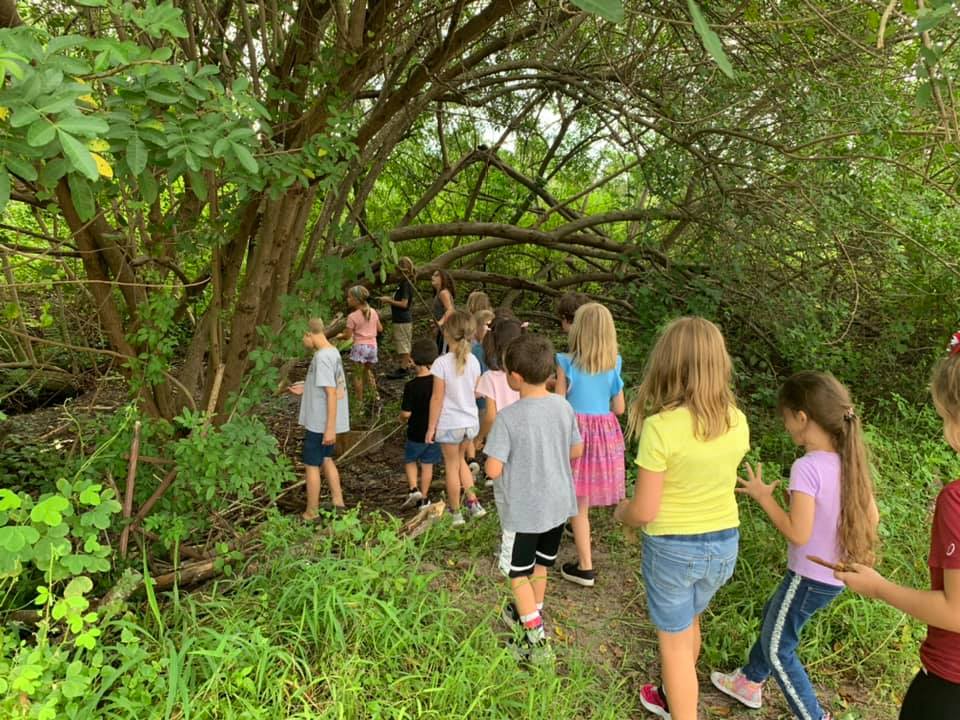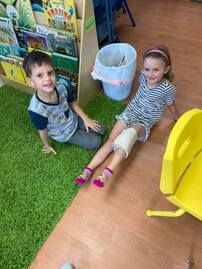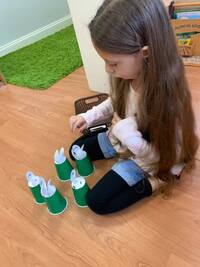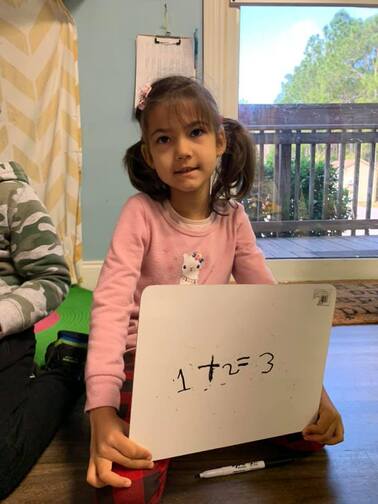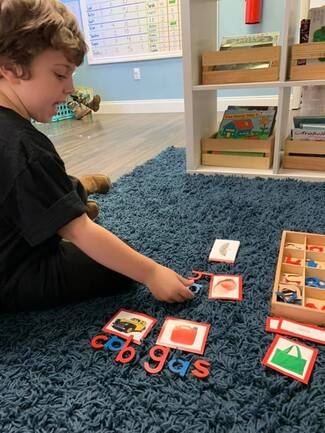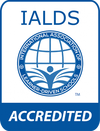We Recognize And Celebrate Each Child's Uniqueness.
We believe that everything we do should reflect respect for each child, their potential, individuality, and humanity. In our approach to education, we seek to help children become independent, self-disciplined, internally motivated, and enthusiastic learners through the curriculum we use, the environments we design, and the methods of guiding development and behavior we employ. Acton students learn to use knowledge as a tool to become independent thinkers and creative problem solvers.
Experiential Learning
Children in our Montessori studio will learn by working with specially designed hands-on learning materials and extensive outdoor play.
Mixed-Age Studio
Montessori studios include mixed ages and mixed skill-levels. Peer learning is encouraged as the little ones learn from observing their older friends, and the older children solidify their understanding by sharing with younger peers.
A Montessori teacher is referred to as a Guide, rather than a teacher, reflecting their non-traditional role. A Montessori Guide is often hard to find in the Studio, as they are generally working one-on-one with a child rather than standing at the front of the room talking to the whole group. Maria Montessori saw the teacher’s role as providing children with tools for learning, rather than pouring knowledge and facts into them.
After modeling how something is done, the Guide steps back and allows the children to be free. Guides do not provide unnecessary aid to a child struggling with work or facing a challenge. They allow time and space for the struggle to happen and for the child to work through it. “Rescuing is robbery.” |
Freedom Within Limits
|
The work in our Montessori studio is child-directed. The Guide gives a child a lesson on a material he/she hasn’t used before, but the child can then independently choose to work on it when he/she pleases. Children in our Montessori studio choose where to sit and what to work on, with guidance from their Guide. |
The Perfect Camping Mug
Educating The Whole ChildMontessori focuses on educating the whole child, including physical, social, mental, and emotional education. Learning takes place through movement and incorporates all the senses, creating pathways and synapses in the brain that cannot be undone. It includes purposeful movement and does not dictate that children sit still and silent. It also incorporates both left brain and right brain learning, and it values each equally. Intelligence is not preferred over physical or emotional development, and the child’s emotional health is at the forefront. Most importantly, learning is not something that ends in grade 12 or at age 18; it is a lifelong quest for personal fulfillment.
|
Individualized Curriculum
In our Montessori studio, each learner is likely engaged in a different academic level observed and tracked by the Guide. Rather than giving group lessons, Montessori Guides gives one-on-one or small group lessons to each learner depending on their specific needs.
Academics
Children’s progress is at their own pace, and artificial deadlines and academic pressure are nonexistent. Equal importance to academic progression is growing in personal virtue, often described within Montessori as grace and courtesy.
Our Montessori learning environment is organized into several distinct areas: Practical Life, Sensorial, Math, Language, Quest, Art, and Geography.
Math Curriculum:
|
The study of mathematics offers gifts far beyond numeracy and calculation. It allows children to develop and exercise their reasoning minds. It teaches children how to evaluate situations, mentally test hypotheses, employ problem-solving strategies, derive conclusions, and articulate them clearly.
As has been recognized since the Ancient Greeks’ time, math serves as the best model for, and the best practice for, core aspects of human reasoning. These are critical skills that learners will need in their future workplaces, in their personal lives, indeed in every aspect of navigating a world increasingly characterized by demanding, rapid change. |
Language Curriculum:
|
The Montessori approach uses a distinct set of practices that nurture a positive, natural learning experience to teach reading and writing.
Our Montessori curriculum is thoughtfully built around teaching children the many elements of reading and writing one by one, accessible to and enjoyable by a child. |
